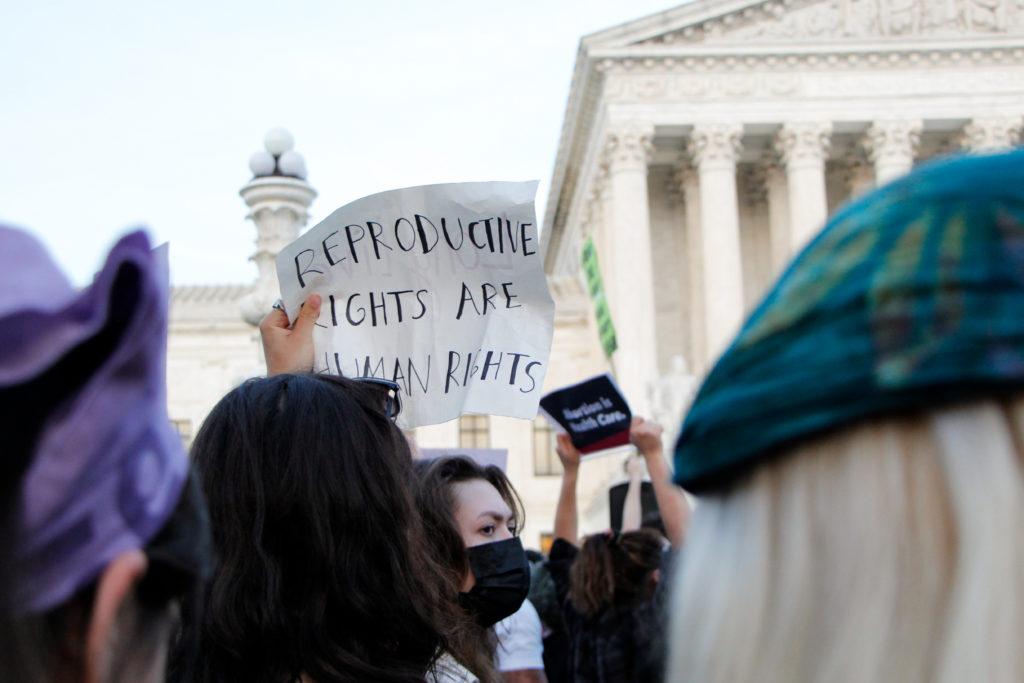The District is preparing to take in a potential surge of patients from nearby states driving to abortion clinics in D.C. as the country awaits the potential reversal of Roe v. Wade.
Reproductive health care officials said people needing abortions in states like West Virginia – where an abortion ban will immediately go into place if Roe v. Wade is repealed – are likely to travel to the D.C., Maryland and Virginia which protect the right to choose. D.C. lawmakers will soon consider legislation that will make the District a “safe haven” for out-of-state patients to receive abortion care.
D.C. Council member Brianne Nadeau, who represents Ward 1, introduced legislation last Friday pushing for D.C. to become a “human rights sanctuary.” If passed, the legislation would prevent D.C. from aiding potential investigations attempting to penalize out-of-state patients who get an abortion in the area and protect people who obtain an abortion from lawsuits by other citizens.
Nadeau said the bill would act against legislation like a Texas bill that Republican Gov. Greg Abbott signed into law in May 2021, allowing private citizens to sue others involved in performing an abortion after just six weeks.
“With this legislation, I am hoping we can solidify the rights of our own residents as well as those who may now be forced to travel here to preserve their own,” Nadeau said in a statement.
Emma Brennan, a volunteer abortion doula at a clinic in the DMV who organizes logistics like transportation and acts as a companion for patients during procedures, said if abortion does become illegal in the District, those who can’t afford to make the commute to other states are less likely to receive a safe abortion. She said this lack of abortion access could disproportionately affect the maternal health of low-income individuals who may not be able to take time off of work or afford childcare and transportation to travel to a clinic.
“Just like how it was before, rich women and rich people who need abortions will get them,” Brennan said. “People who don’t have access to transportation, like if you can’t get a bus, if a bus across town has an issue, can you imagine trying to get to like Philadelphia, or Baltimore or something like that?”
Brennan said safely getting people to and from the clinic is one of the largest priorities in protecting abortion access for people of all income levels. She said organizing transportation and childcare are the largest reasons why many patients don’t show up for appointments at her clinic.
“When folks come from West Virginia, the amount of work they have to do to coordinate their lives to get to our clinic is insane,” Brennan said. “It is wild, people drive six hours to get through the door.”
Brennan said D.C. is in a “precarious” situation as a city where Congress has the power to ban or limit future abortion access as long as the District lacks statehood. But she said D.C. benefits from the vicinity of other states like Maryland and Delaware that will likely codify Roe v. Wade because those states have passed legislation protecting the right to choose. The state of Maryland signed a law protecting the right to choose in 1991, and Delaware added the explicit right to a pre-viability abortion to state law in 2017.
She said she never expected Roe v. Wade to be overturned within her lifetime and hopes the right to bodily autonomy is always protected within her clinic’s area. Brennan said she wants to eliminate that concern from her patients during procedures by comforting them and answering any questions they may have.
“To me, what’s really important is that no matter what, my clinic will always be like a bubble,” Brennan said. “Like when someone walks through that door, the outside world and this particular thing does not matter to the client, and it shouldn’t affect their experience at all, honestly – at least that’s my desire.”
Jessica Waters, the dean for undergraduate education at American University, a faculty member in the AU School of Public Affairs and a reproductive health law expert, said West Virginia is the only state in the mid-Atlantic region of the East Coast that will immediately restrict abortion if Roe v. Wade is overturned, joining at least 25 other states predicted to ban abortion post-Roe. She said West Virginia residents will likely look toward the D.C., Maryland and Virginia area as the nearest destination for abortion care for this reason.
“If we look at the DMV area, they do not have those laws on the books,” Waters said. “West Virginia does. So I think we’re likely to see, pretty quickly, women coming from West Virginia into D.C., Maryland and Virginia.”
Waters said D.C.’s lack of statehood makes it difficult to predict how the city’s abortion care will change if Roe v. Wade is overturned, but Congress has previously and continually restricted the District from using tax dollars to fund abortions for low-income patients.
House Republicans passed a bill in January 2017 preventing the District from using city money to subsidize reproductive care, and two years prior, a Republican-controlled Congress voted to strike down city legislation protecting employees from discrimination based on their reproductive health choices in April 2015.
Waters said she looks toward upcoming elections in states like Virginia to assess how states’ rulings may change if Roe v. Wade is overturned. Virginia state law currently allows first- and second-trimester abortions but only permits third-trimester terminations in cases of rape and incest or if the child or parent’s health is at risk.
“In Virginia, it’s obviously a battleground state in a lot of ways. Right now, as far as access to abortion care, there are some restrictions,” Waters said. “But I think abortion and reproductive rights are likely to become a very contested issue in upcoming elections in Virginia.”
Duc Than contributed reporting.






